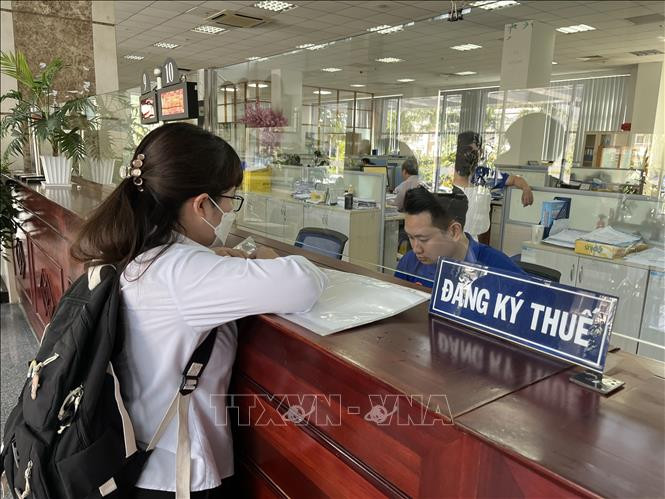The Ministry of Finance has just issued Decision 1686/QD-BTC on public announcement of the 2022 state budget settlement.

According to the Ministry of Finance, the estimated state budget revenue in 2022 is VND 1,413,408 billion; the final settlement is VND 1,820,310 billion, an increase of 28.8% (VND 406,902 billion) compared to the estimate, the state budget mobilization rate reaches 19.1% of GDP, tax and fee revenue alone reaches 15.16% of GDP.
Of which, the estimated domestic revenue is 1,178,408 billion VND, the finalized revenue is 1,447,915 billion VND, an increase of 22.9% compared to the estimate. Of the domestic revenue, 10/12 revenue items exceeded the estimate, notably the revenue from 3 economic sectors in 2022 increased significantly compared to the estimate: revenue from the state-owned enterprise sector increased by 13.3%, revenue from the foreign-invested enterprise sector increased by 18.2%, revenue from the non-state economic sector increased by 21.7% compared to the estimate.
However, in 2022, 2/12 domestic revenue items did not meet the estimate, including environmental protection tax decreased by 27.8% compared to the estimate due to the implementation of the policy of reducing environmental protection tax collection by 50% for gasoline, oil, grease, and aviation fuel; capital recovery, dividend collection, profit, profit after tax, and revenue and expenditure difference of the State Bank decreased by 16.5% compared to the estimate, due to the recovery of state budget capital invested in economic organizations reaching only VND 3,848 billion due to the progress of equitization and divestment of state capital in enterprises being slower than planned.
In addition, the estimated state budget expenditure in 2022 is VND 1,855,641 billion; the final settlement is VND 1,750,790 billion, down 5.7% compared to the estimate.
The Ministry of Finance said that in fact, the state budget revenue in 2022 increased compared to the estimate for many reasons. Accordingly, in addition to the efforts of the financial sector, an important reason is the leadership of the Party, close supervision of the National Assembly, close and timely direction of the Government and Prime Minister; the drastic participation of the entire political system, authorities at all levels from central to local; and the efforts of the business community and the people.
In addition, the proactive and active implementation of fiscal policies, synchronous and timely implementation of solutions for management and operation of budget revenue and expenditure, thorough savings, tightening of financial and budgetary discipline, and positive contributions to the completion of socio-economic development goals and tasks.